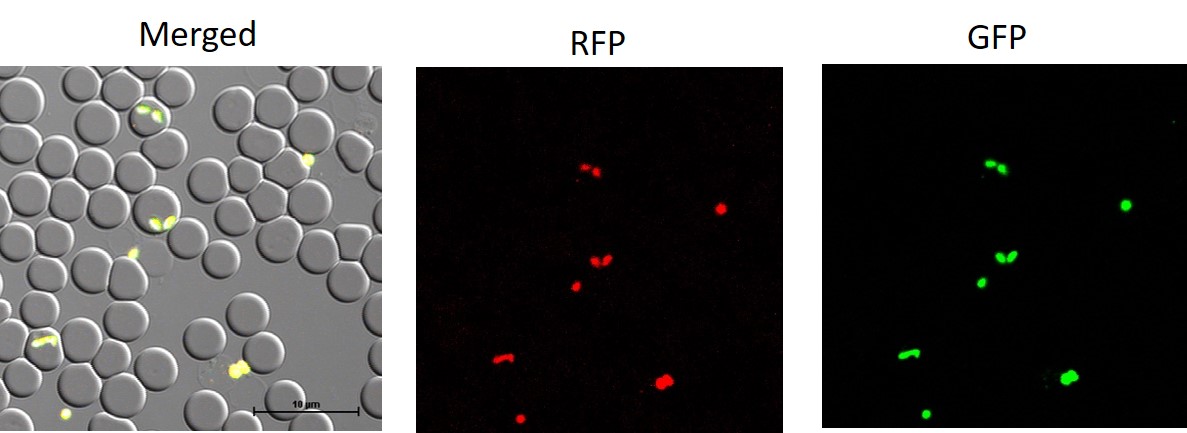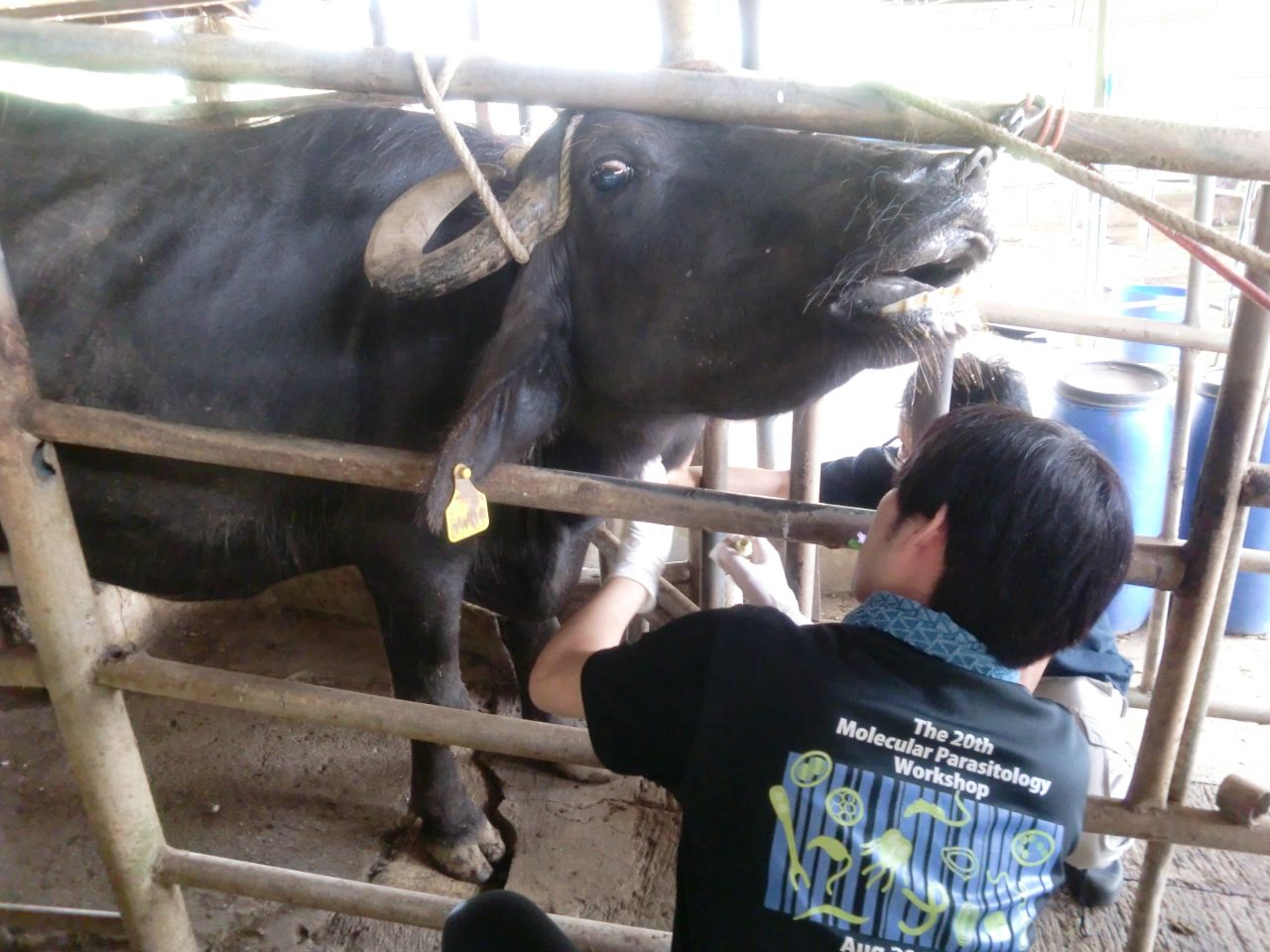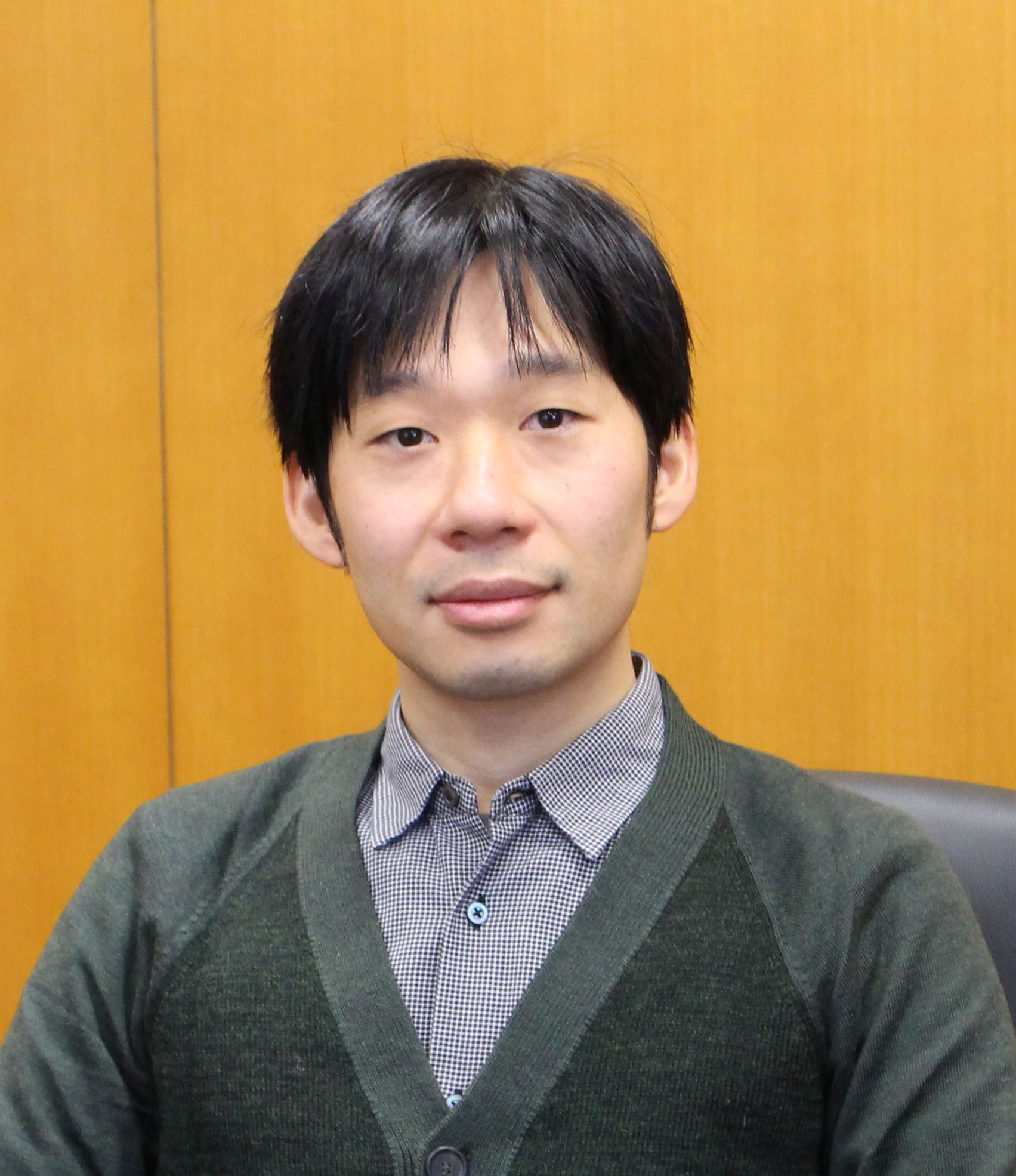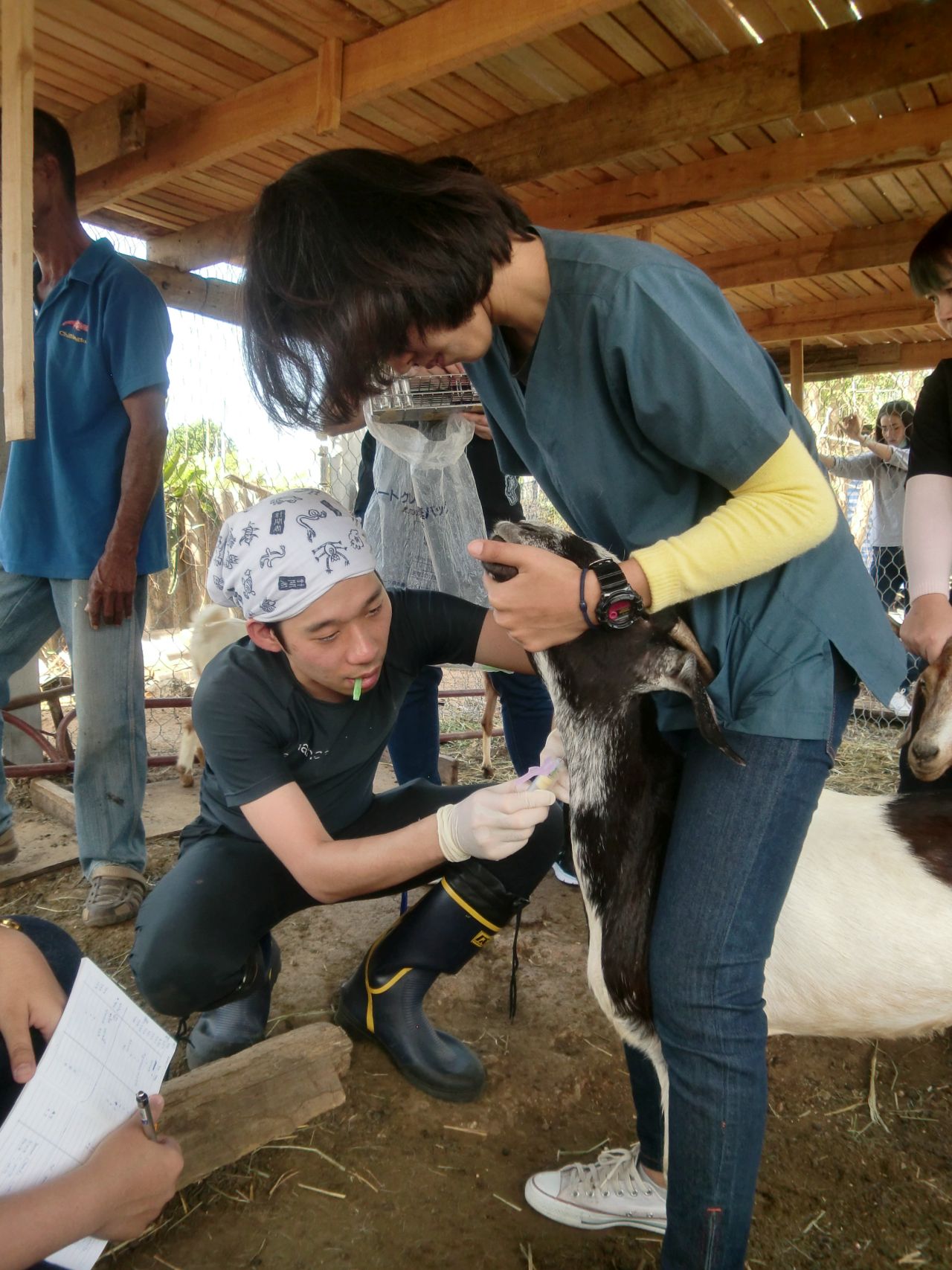Staff
ASADA Masahito
Associate Professor
Theme
To understand the mechanisms of protozoan parasitism and find a way to control the diseases, we are studying on functional genomics of protozoan parasites and performing field epidemiology of the diseases.Belongs
National Research Center for Protozoan Diseases, Department of Global Cooperation, Research Unit for Global Infection Control
Research Center for Global Agromedicine, Department of Veterinary Medicine
Faculty (Unit)
| Field of research | Protozoan disease, Genetic engineering, Molecular epidemiology |
| Keyword | Parasite, Piroplasma, Babesia, Malaria |
Introduction
- Study on Babesia
In recent years, advances of methods to genetically manipulating apicomplexan parasites have enabled the study of their behavior within their hosts. We have developed gene disruption method on Babesia bovis and recently we suceeded to develop genome editing technique on the parasite. Using these techniques, we revealed the biological features of Babesia such as, gliding motility of Babesia merozoites, and erythrocyte modification by the parasites.
- Study on ungulate malaria parasites
Malaria parasites of even-toed ungulates were first observed in 1913, however its epidemiology was not well known until recent years. We performed molecular epidemiological survey in Southeast Asian countries, and we found Plasmodium was readily detectable from water buffaloes and goats in these areas.


List of current research topics
- Mechanisms of host erythrocyte modification by piroplasma parasites
- Erythrocyte invasion mechanisms of piroplasma parasites
- Epidemiology and pathology of ungulate malaria parasites
| Related industries | Animal hygiene, Medical, pharmaceutical |
| Affiliated academic society | The Japanese Society of Veterinary Science, Japanese Society of Parasitology, Japanese Society of Tropical Medicine, The American Society for Microbiology |
| Academic degree | Ph.D |
| License | D.V.M. |
| Room address | General Research Building 4 |
| Room number | 108 |
| Mail address |
masada  obihiro.ac.jp obihiro.ac.jp |


